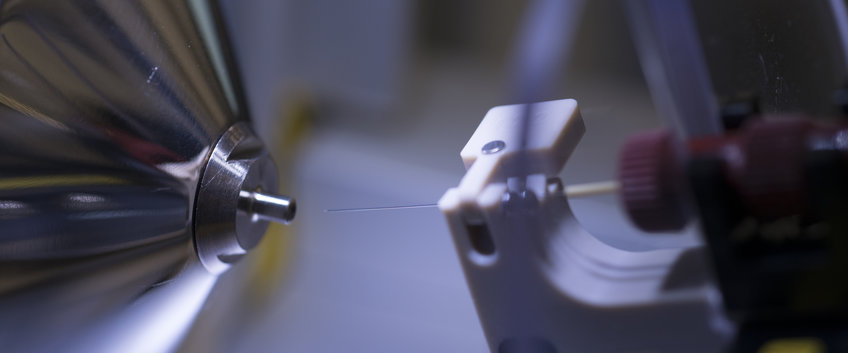
Bioanalytical Mass Spectrometry
The Bioanalytical Mass Spectrometry group works on the analysis of proteins and protein complexes, and on interactions between proteins and nucleic acids, using state-of-the-art mass spectrometric instrumentation. We analyze our samples mainly using electrospray ionisation (ESI) and in special cases matrix-assisted laser desorption/ionisation (MALDI) mass spectrometry.
Our central research projects are the sensitive high-throughput analysis of proteins (proteomics), the detection of post-translational modifications in proteins and the mass-spectrometric quantification of proteins. Furthermore, we investigate structural aspects of proteins by the mass spectrometric analysis of protein-protein and protein-nucleic acid interactions.
The Bioanalytical Mass Spectrometry group is involved in several collaborative research projects within the Max Planck Institute for Multidisciplinary Sciences. The group does also provides all modern types of mass spectrometric protein analysis as a Core Facility for Proteomics for all researchers at the Max Planck Institute for Multidisciplinary Sciences. Furthermore, the group has a successful, long-term external collaboration with the Center for Internal Medicine at the University Hospital Frankfurt/Main.
In addition, the Bioanalytical Mass Spectrometry group has a branch laboratory, consisting of the Proteomics Resarch Group and the Proteomics Service Facility, at the Institute for Clinical Chemistry at the University Medical Center Göttingen. The Proteomics Service Facility provides mass spectrometric services for the University Medical Center Göttingen and the Medical Faculty and the Proteomics Research Group works independently on clinically relevant research projects.

